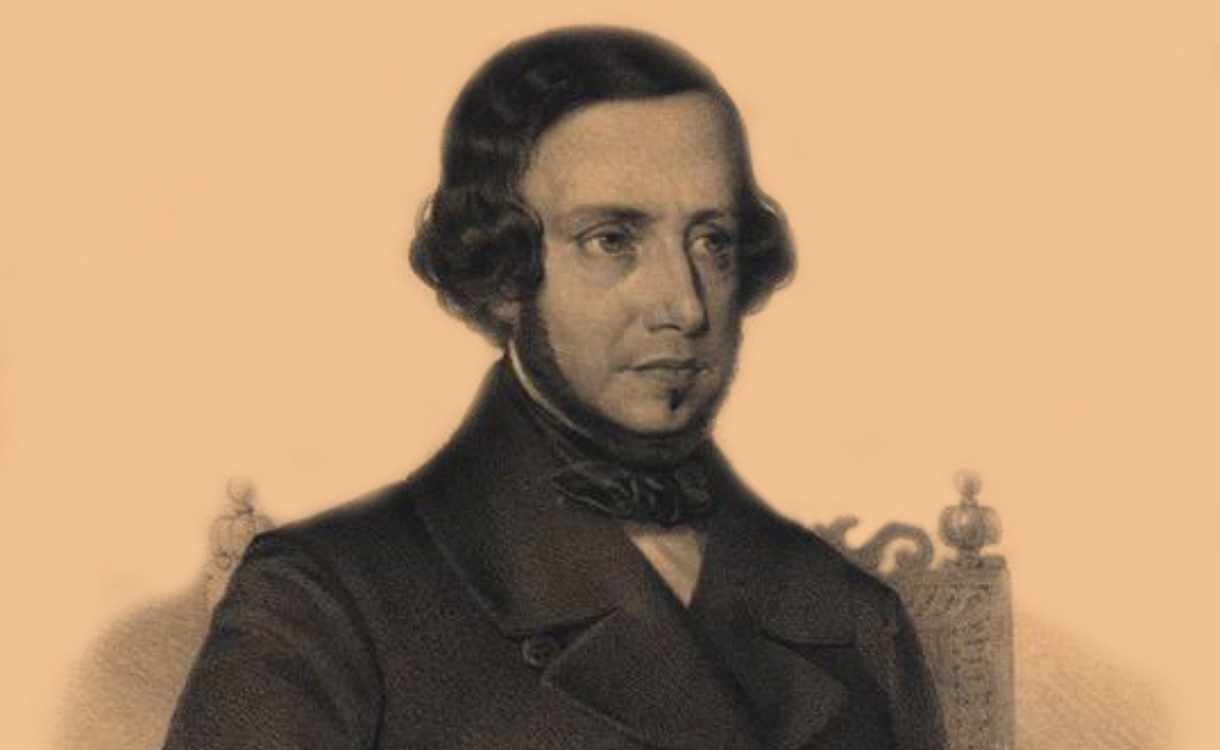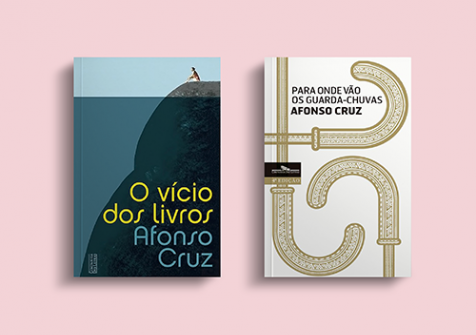Blog
15 of May of 2024
Almeida Garrett

Almeida Garrett (Porto, 1799 - Lisbon, 1854) can rightly be considered an exponent of Portuguese literary modernity. Regarding his pioneering role, it's enough to remember that he was the founder of Romanticism (with the poem Camões) and later of modern theater in Portugal (with Frei Luís de Sousa), or even of topical narrative (with Viagens na Minha Terra). These are certainly his three greatest works, but many others demonstrate the author's eclectic talent as a poet, playwright and novelist. Mention should be made, for example, of the poetry collections Lírica de João Mínimo and Folhas Caídas, the narrative poems Dona Branca and Adozinda, the historical novel O Arco de Sant'Ana, the dramas Um Auto de Gil Vicente, Filipa de Vilhena and O Alfageme de Santarém.
In aesthetic terms, Garrett was always able to reconcile the structuring principle of romantic nationalism with a cosmopolitan cultural vocation, which contributed to the originality of his writing: he renewed traditional concepts of genre and style, creating versatile forms of expression; he legitimized prose as a 'noble' instrument of communication and, at the same time, opened up new horizons for the literary language itself, sometimes mixing erudite and popular registers, sometimes adopting foreignisms and neologisms. Also noteworthy is the light colloquial manner in which he addresses the reader, captivating and surprising him with a keen sense of humor.
Intertwined with the political history of Vintismo, Garrett's literary work takes on the enlightened and ethically committed slant of someone who believes that “the poet is also a citizen”, and cannot therefore be dissociated from the dynamic context in which it was born: the revolution of 1820, the exiles, and the subsequent conquests and vicissitudes of the liberal regime. Hence the multifaceted nature of his output, which encompasses cultural and political essayism (Portugal in the Balance of Europe), pedagogy (Da Educação), parliamentary oratory and journalism. In the 1920s, he launched a small worldly newspaper - O Toucador (aimed at ladies), which was followed by two leading periodicals, O Português and O Cronista. In the following decade, he founded O Português Constitucional and the theatrical newspaper O Entreato.
This diversity of interests is the result of an intense public life, in which he defines himself as “... a true man of the world, who has lived in the courts with the princes, in the countryside with the men of war, in the cabinet with the diplomats and men of state, in parliament, in the courts, in the academies, with all the notables of many countries - and in the salons with the women and the frivolous of the world, with the elegances and the fatuities of the century” (his own words, in the introduction to Viagens na Minha Terra).
Almeida Garrett's best-known works are currently available in multiple collections, but not always edited with the necessary rigor. On the initiative of Ofélia Paiva Monteiro, an editorial project was launched in the 2000s to bring together the author's entire output: the Critical Edition of the Works of Almeida Garrett [ https://www.uc.pt/fluc/clp/inv/proj/patlit/ecag ]. This collection, a partnership between the Center for Portuguese Literature and the Imprensa Nacional-Casa da Moeda, has already been published in 10 volumes, including scattered, fragmentary and unpublished texts, most of whose manuscripts are kept at the General Library of the University of Coimbra.
Article written by: Maria Helena Santana
In aesthetic terms, Garrett was always able to reconcile the structuring principle of romantic nationalism with a cosmopolitan cultural vocation, which contributed to the originality of his writing: he renewed traditional concepts of genre and style, creating versatile forms of expression; he legitimized prose as a 'noble' instrument of communication and, at the same time, opened up new horizons for the literary language itself, sometimes mixing erudite and popular registers, sometimes adopting foreignisms and neologisms. Also noteworthy is the light colloquial manner in which he addresses the reader, captivating and surprising him with a keen sense of humor.
Intertwined with the political history of Vintismo, Garrett's literary work takes on the enlightened and ethically committed slant of someone who believes that “the poet is also a citizen”, and cannot therefore be dissociated from the dynamic context in which it was born: the revolution of 1820, the exiles, and the subsequent conquests and vicissitudes of the liberal regime. Hence the multifaceted nature of his output, which encompasses cultural and political essayism (Portugal in the Balance of Europe), pedagogy (Da Educação), parliamentary oratory and journalism. In the 1920s, he launched a small worldly newspaper - O Toucador (aimed at ladies), which was followed by two leading periodicals, O Português and O Cronista. In the following decade, he founded O Português Constitucional and the theatrical newspaper O Entreato.
This diversity of interests is the result of an intense public life, in which he defines himself as “... a true man of the world, who has lived in the courts with the princes, in the countryside with the men of war, in the cabinet with the diplomats and men of state, in parliament, in the courts, in the academies, with all the notables of many countries - and in the salons with the women and the frivolous of the world, with the elegances and the fatuities of the century” (his own words, in the introduction to Viagens na Minha Terra).
Almeida Garrett's best-known works are currently available in multiple collections, but not always edited with the necessary rigor. On the initiative of Ofélia Paiva Monteiro, an editorial project was launched in the 2000s to bring together the author's entire output: the Critical Edition of the Works of Almeida Garrett [ https://www.uc.pt/fluc/clp/inv/proj/patlit/ecag ]. This collection, a partnership between the Center for Portuguese Literature and the Imprensa Nacional-Casa da Moeda, has already been published in 10 volumes, including scattered, fragmentary and unpublished texts, most of whose manuscripts are kept at the General Library of the University of Coimbra.
Article written by: Maria Helena Santana



.png)